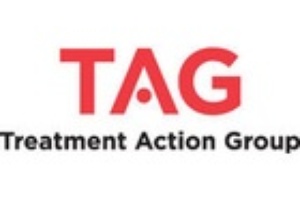Children with drug-resistant TB make up the most neglected patient population
Treatment Action Group analysis finds global TB R&D rose by just 2% from 2009: Less than one-third of the global need.
NEW YORK, NY —In recognition of World Tuberculosis day on March 24th, Treatment Action Group (TAG) calls for the re-focusing of attention on the tremendous burden that tuberculosis (TB) plays around the world. TB is a disease of the poor – more than 80% of TB cases worldwide arise in the global south. According to the World Health Organization, nearly 4,000 people die every day because of TB. There were 8.8 million people newly diagnosed with TB in 2010, including 1.1 million cases among people with HIV – which, coupled with the emergence of drug resistant TB, including some untreatable strains – creates a deadly synergy. Despite this reality, investment in TB research has remained very low compared to the worldwide burden.
The updated report – Tuberculosis Research and Development: 2011 Report on Tuberculosis Research Funding Trends, 2nd edition, released by TAG in collaboration with the Stop TB Partnership – tracks annual research spending on TB across six research and development areas, with a deeper analysis of the top ten funders who accounted for 81% of the global funding total in 2010. The report reveals that in 2010 the world invested just $630.4 million in TB research and development (R&D). While spending rose slightly (2%) since 2009, it is the smallest year-on-year increase documented by TAG. TB R&D funding still remains at less than one-third of the projected $2 billion annual investment needed to eliminate TB as a public health threat by the year 2050. According to TAG’s senior researcher Eleonora Jiménez-Levi, “The report provides year-on-year trends for policymakers and activists so they may identify who the major TB donors are, know where the funds are invested, and determine where to target advocacy efforts. We hope it will catalyze donors, government, industry, and civil society to work toward the $2 billion per year needed to produce new tools to prevent, diagnose, and treat TB.”
"TB is in danger of falling off the global health priority map," commented TAG’s Executive Director Mark Harrington. "Tuberculosis grants receive only ten percent of funds from the Global Fund to Fight AIDS, Tuberculosis, and Malaria. The cancellation of the upcoming round 11 funding – which was to have had a special focus on TB – endangers life-saving programs across the world. Meanwhile, President Obama's proposed 2013 budget gratuitously cuts $12 million to reduce US contributions to bilateral TB assistance through USAID to a derisory $224 million. While new diagnostics, drugs, and regimens now in development have the potential to lead to a renaissance in TB control and elimination, the US is abandoning its global leadership in the fight against the disease."
TAG, in partnership with the Sentinel Project on Pediatric Drug-Resistant Tuberculosis, also launched Being Brave: Stories of Children with Drug-Resistant Tuberculosis. This collection documents the devastating impact of drug-resistant tuberculosis (DR-TB) on children. These stories are particularly relevant this World TB Day, when the call to “Stop TB in My Lifetime” emphasizes fighting pediatric TB, including DR-TB.
Being Brave: Stories of Children with Drug-Resistant Tuberculosishighlights 15 children in seven countries to illustrate the challenges of fighting DR-TB in children, and the need for urgent action.
Some stories show that without prompt diagnosis and treatment, children die from DR-TB. Others, like that of 15-year-old Oyella Mercy from Uganda, provide hope. After receiving an accurate diagnosis and proper treatment for DR-TB, Oyella Mercy exclaims, “Now I am feeling a little good. I’m going to school—I like learning. When the treatment is finished in May, I’ll feel happy, I’ll play with my friends and I’ll dance, because I’ll be cured.” Oyella Mercy’s case and several others demonstrate that DR-TB in children is curable with access to quality medical services.
Being Brave: Stories of Children with Drug-Resistant Tuberculosis documents, however, that even in successful cases, diagnosis and treatment of DR-TB in children is lengthy and difficult. Diagnostic tools are often inaccurate and can take months to determine resistance. Without pediatric formulations of most drugs, treatment is difficult to administer. Children and their caregivers struggle with treatment: “I wish I didn’t have to take so many medications, they make me feel weak and nauseous,” eleven-year-old Yousra from Pakistan notes. The need for accelerated R&D to improve vaccines, diagnostics and drugs to prevent, detect and treat DR-TB in children is clear.
With fewer than 5% of people with DR-TB receiving treatment, and a point-of-care test for TB only a distant hope, TB R&D funding needs a dramatic ramp-up. Yet President Barack Obama’s budget for 2013 proposes a first-ever flatlining of the budget of the National Institutes of Health (NIH), the world’s largest funder of TB R&D. TAG urges immediate increased support for the NIH overall and for targeted research on TB, to fight TB, and particularly DR-TB in children.
Download Being Brave: Stories of Children with Drug-Resistant Tuberculosis.
Download the Report on Tuberculosis Research Funding Trends, 2005–2010, 2nd Edition.
###
Treatment Action Groupis an independent AIDS research and policy think tank fighting for better treatment, a vaccine, and a cure for AIDS. TAG works to ensure that all people with HIV receive lifesaving treatment, care, and information. We are science-based treatment activists working to expand and accelerate vital research and effective community engagement with research and policy institutions. TAG catalyzes open collective action by all affected communities, scientists, and policy makers to end AIDS.
The Sentinel Project on Pediatric Drug-Resistant Tuberculosisis a global partnership of researchers, caregivers, and advocates aiming to develop and deploy evidence-based strategies to prevent child deaths from this treatable disease. The Sentinel Project on Pediatric Drug-Resistant Tuberculosis is a learning network committed to generating and disseminating knowledge and data for immediate action. To learn more, visit: www.sentinel-project.org


